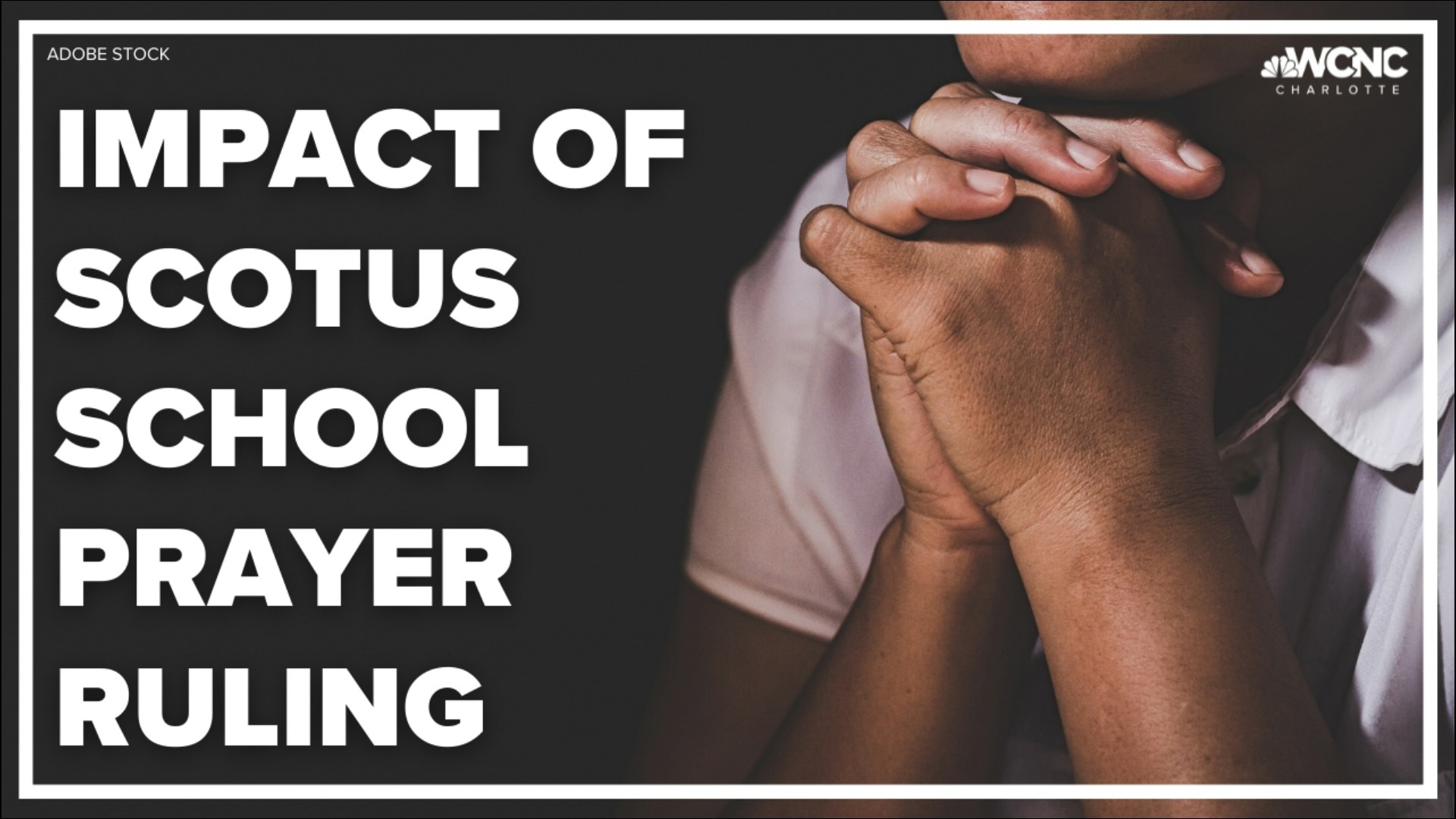CHARLOTTE, N.C. — The Supreme Court ended its session ruling on several cases that impact schools. One of the most controversial rulings was in favor of a high school coach to privately pray midfield after games.
WCNC Charlotte spoke with a Charlotte-based education lawyer on what this means for local school districts.
“The U.S. Supreme Court recently held that a football coach had a First Amendment right under both the Free Exercise Clause and the Free Speech Clause, to have a private prayer," Jonathan Vogel said.
Vogel is an education lawyer and former Deputy General Counsel of the U.S. Department of Education.
The First Amendment guarantees freedoms concerning religion, expression, assembly, and the right to petition. The Free Exercise Clause protects citizens' right to practice their religion as they please, so long as the practice does not run afoul of "public morals" or a "compelling" governmental interest," according to the U.S. Judicial Branch.
Vogel said the ruling involves the right to personal prayer and includes every religion.
"Through the years, the U.S. Supreme Court has made clear that the First Amendment's Free Exercise Clause and Free Speech Clause applied to all religious expressions, regardless of the type of religion," Vogel said. "If one has a sincerely held religious view, then one is protected."
So does this ruling open the door to forced prayer in the classroom?
"Absolutely not, a public school employee or student cannot be coerced by the school or by the school district to participate in religious activity, including religious speech or prayers," Vogel said.
This right to private speech is not restricted only to the football field.
"One could take a look at the reasoning of the court and see that it would also apply to circumstances inside of a school building where an employee has a moment where he or she does not have a responsibility, maybe in the faculty lounge, for example, and chooses to say a prayer over his or her lunch," Vogel said.
Charlotte-Mecklenburg Schools Board Chair Elyse Dashew said the district is reviewing the ruling.
“There's a lot to unpack there," Dashew said. "And our attorneys haven't, I don't know that they've had a chance to really analyze it and get back to us on what this means in terms of changes of policies or procedures.”
Vogel explained the big takeaway is the high court decided that individuals have more freedom to exercise religion without government intervention.
Critics of the ruling believe a person of authority allowed to individually pray in view of students could be inherently coercive.
The National School Board Association wrote a brief to the Supreme Court and in it, the group argued, “Students are a captive audience with impressionable young minds” and may feel forced to participate in prayer.
They cite the football coach in question as a power of influence.
"Their interactions with students within the classroom or at school-sponsored events are inescapably official acts condoned by the public school systems which employ them, as they act as real or perceived mouthpieces for their school districts," the Amici Brief said.
The court disagreed.
"We must tolerate that some of that speech might not make us comfortable, or we might not agree with certain speech or certain religious expressions," Vogel said.
School districts may create new policies in response to the ruling, or may respond to incidents regarding individual prayers on a case-by-case basis.
Contact Shamarria Morrison at smorrison@wcnc.com and follow her on Facebook, Twitter and Instagram.

